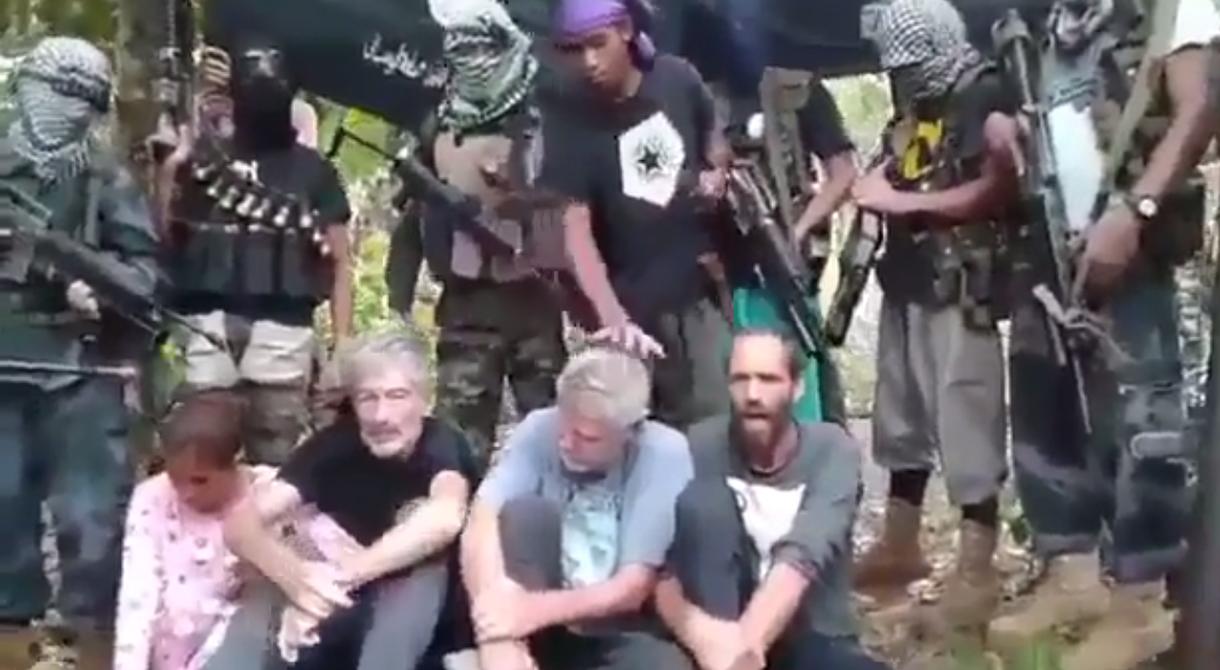Strike on Abu Sayyaf
April 21, 2017 | Expert Insights

How will Duterte’s plan pan out?
President Rodrigo Duterte on 9th April 2017 ordered the military to wipe out the Al Qaeda-linked Abu Sayyaf terrorists. While urging the military to use any method to exterminate the terror group, he said that this should be treated on par with bloody war on illegal drugs that he had launched earlier in June 2016.
Nine people; which was composed of five members of the Abu Sayyaf, three Army soldiers and a policeman were killed and two others wounded as government security forces on Tuesday while attempting to rescue the 19 hostages. On 13th April 2017, the military reported the killing of a ranking leader Muammer Askali alias Abu Rami (spokesman for kidnapping and murder or German and Canadian Nationals) and key member of Abu Sayyaf.
History of Abu Sayyaf
Abu Sayyaf is a Jihadist group founded by Abdurajik Abubakar Janjalani, based in the southern part of Philippines. The group is considered to be violent and have been involved in commission of various crimes such as kidnapping, rape, child sexual assault, forced marriage,drive-by shootings, extortion, and drug trafficking.
The group has been categorised as a terrorist group by the UN, Australia, Canada, Indonesia, Malaysia, Philippines, United Arab Emirates, UK and USA. Regional and Filipino security experts have also confirmed the link of the Abu Sayyaf to the global Al Qaeda terror network through the Indonesia-based Jemaah Islamiyah extremists.
Is the Philippines taking the right stance on internal terrorism?
Duterte’s attempts to wipe his country clean of any drug use and trafficking have been met with widespread shock and horror. Rappler, a noted Filipino newspaper estimates that the total amount of people killed in his ‘War on Drugs’ is an atrocious 7,000 people.
Duterte cannot afford to take the same stance on the terrorist group, Abu Sayyaf. The armed militants are not the same as the ‘War on Drugs’ where it was mostly civilians and peddlers being targeted. If Duterte approaches the issue with the intention to annihilate the group it could be met with dangerous retaliation. The tactics of Al-Qaeda affiliated groups are known to the world and Duterte. They choose to attack the indigenous population and thrive of the instability. The President’s lack of vision and unwillingness to create a dialogue between the government and the group could lead to the people being subjected to terror attacks.
Assessment
Terrorism has a socio-political, economic as well as psychological effect on the world community. Terrorism today has evolved from anarchist terrorism, Independence driven terrorism, communism driven terrorism to religious terrorism.
Individual fights against terrorism will have minimum results but when group efforts are put in towards the same, the results can improve significantly.
Human rights should be upheld and only when this is done can the fight against terrorism be won. Dialogue and discourse in some ways are the best ways to tackle terrorism, Duterte’s penchant for brute force is a concern for the future of the nation.








Comments